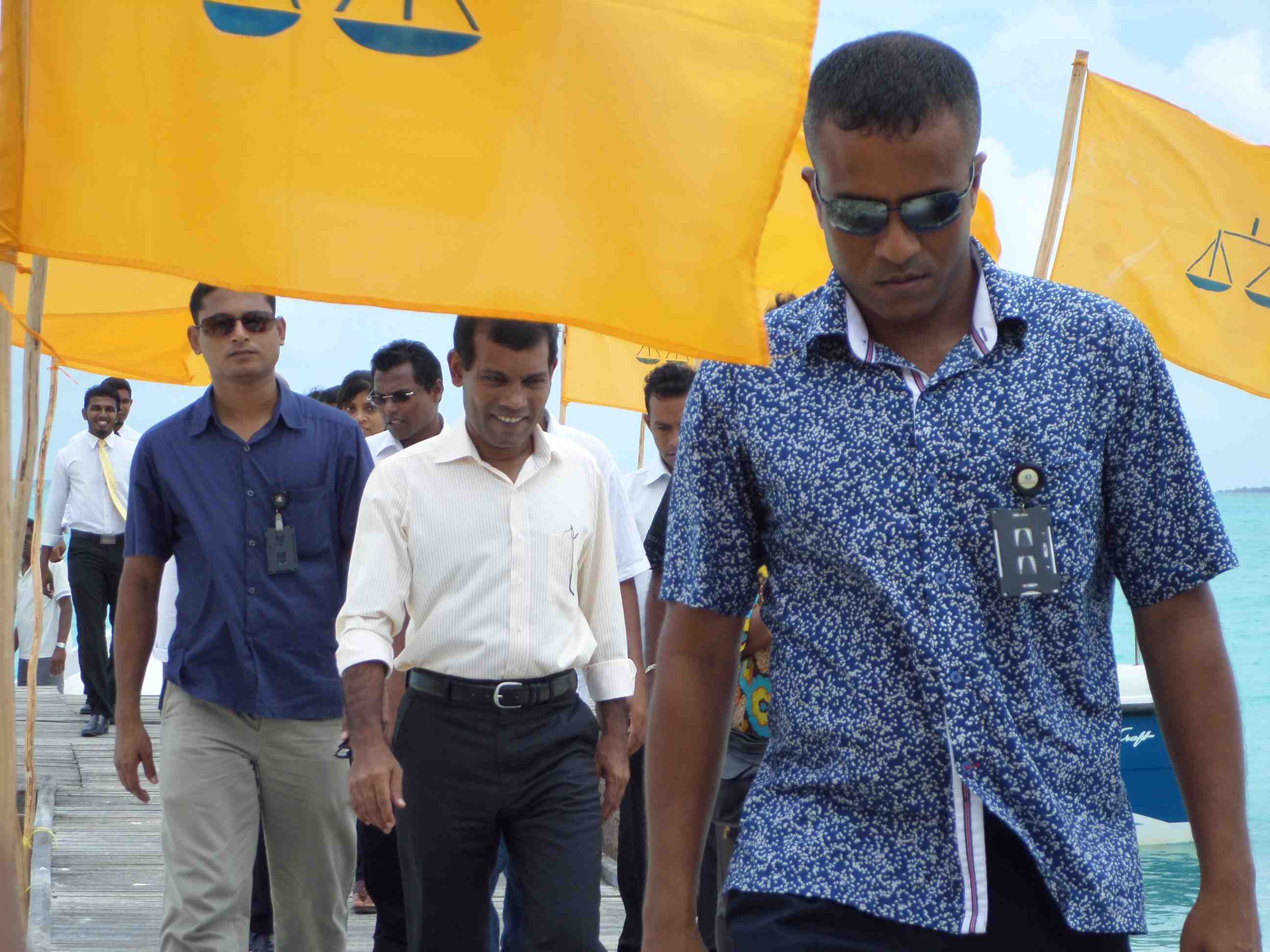Insights into the Baaghee mind: CoNI interview with a policeman who mutinied
The following interview with a policeman reveals some of the views that mutinying police held on 7 February, and some of the opinions and justifications they have in relation to their actions. The interview also reveals much about the tactics and techniques by CoNI, led by Ismail Shafeeu. The information shared with CoNI by hundreds of witnesses is still being withheld from the public, close to a year after its ‘findings’ were published. When Gahaa Ahmed Saeed resigned from CoNI he pointed to several problems with the process, and declared ‘it was all going wrong’.
How interviews were conducted at CoNI, and the shape that proceedings took, is of important public interest, so is published here. However, in acknowledgement of recent warnings by Defence Minister Mohamed Nazim on introducing a new mechanism that targets the ‘too free social media’, the policeman’s name is withheld and referred to as: P Where grammar and other mistakes were made, I have left them as is, instead of guessing at the meaning.
**********
[Preliminaries. Statement of CoNI purpose]
Yasir: We noticed you as someone who went to the Republic Square from Artificial Beach, and didn’t return to the beach on hearing of violent fights breaking out there. So can you tell us what happened during that time — between returning to the Republic Square and going back to the Artificial Beach in response to the fighting?
P: We returned and sat down right in the middle of the Square. On the phone and on radio, we heard reports of fighting on the other side [Artificial Beach].
Yasir: You could see it on radio, TV?
P: We didn’t see any TV.
Yasir: No TV?
P: Lots of information on radio and from the guys. There were Capital Police, and several other units. From them we heard the two sides were fighting over there. We heard of heads and things being cut open, and of other major injuries.
We can’t just stay and watch, one guy said. It’s in our oath, and in the pledge we make every day we report to duty—to protect the general public and people. We can’t just stay here.
We all agreed, and ran.
As it happened, I had removed my body armour, so I put it back on. So I only managed to get on the last of the trucks; several guys had already left in others. Some were running. I got on the last truck to go, but it wouldn’t move. It just stayed right where it was. I heard later some people confiscated the key. I didn’t see this, though.
I decided to jump off the truck and run. Between the parked motorbikes on the waterfront side and the truck, I met Farhad Sir and Deputy Commissioner Anthi. Each took one of my hands and held them.
Sir, let me go, I said. Major crimes are being committed between the two sides. Release me, I must do my duty.
Wait, wait, they told me.
Then update me on what’s happening on the other side, I said.
It’s all good now, the military has attended to it, they responded.
We only left after the military came, I said. But then they were let go. Isn’t that why there’s fighting there now? Let me go.
That’s when I broke into tears; and I didn’t get a chance to continue the conversation.


